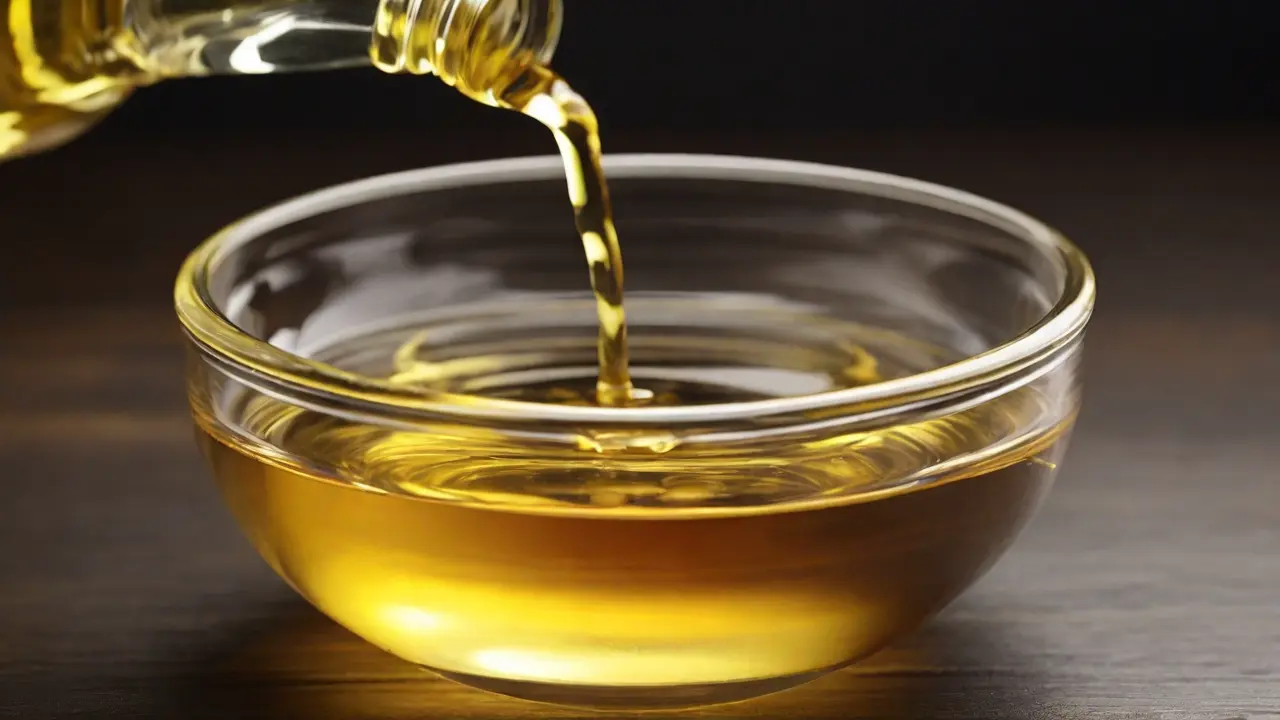Cooking oils play a pivotal role in our daily diet, not only adding flavor to our meals but also serving as essential sources of nutrients. From sautéing vegetables to dressing salads, oils are ubiquitous in culinary practices worldwide. However, amidst their significance, there’s a growing concern regarding the health and environmental implications associated with commonly used cooking oils, including the 10 worst cooking oils. This article aims to shed light on the potential risks posed by these oils, offering insights into their impact on both personal well-being and the planet.
Palm Oil

Palm oil has garnered attention for its prevalence in processed foods and its economic affordability. Its versatility in various food products, ranging from margarine to baked goods, has made it a staple in the food industry. However, the high saturated fat content in palm oil has raised alarms among health professionals. Regular consumption of saturated fats has been linked to elevated levels of LDL cholesterol, increasing the risk of heart disease and other cardiovascular ailments. Moreover, the widespread cultivation of oil palm trees for palm oil production has led to extensive deforestation, particularly in regions like Southeast Asia and Africa. This rampant deforestation contributes to habitat destruction, threatens biodiversity, and accelerates climate change, making palm oil production a significant environmental concern.
Corn Oil

Corn oil, extracted from the germ of corn kernels, is a rich source of omega-6 fatty acids, essential for various bodily functions. However, the modern Western diet tends to be disproportionately high in omega-6 fatty acids compared to omega-3 fatty acids. This imbalance can lead to chronic inflammation, a precursor to many chronic diseases, including cardiovascular disease, diabetes, and certain cancers. The refining process involved in producing corn oil further exacerbates this issue by stripping away natural antioxidants and other beneficial compounds present in the raw corn kernels. As a result, while corn oil remains a popular choice for cooking due to its mild flavor and high smoke point, its consumption should be moderated to maintain a balanced intake of fatty acids and minimize the risk of inflammation-related health issues.
Canola Oil

Canola oil, derived from rapeseed, has gained widespread acceptance as a healthier alternative to traditional cooking oils due to its relatively low saturated fat content and high levels of monounsaturated fats. However, the production process of canola oil involves significant refinement, including bleaching, degumming, and deodorizing, which can lead to the loss of heat-sensitive nutrients and the formation of trans fats. Trans fats, notorious for their adverse effects on cholesterol levels and cardiovascular health, are a byproduct of hydrogenation—a process used to stabilize the oil and prolong its shelf life. Despite efforts to minimize trans fat content in commercial canola oil, consumers should remain cautious and opt for less processed alternatives whenever possible to reap the full nutritional benefits of this oil.
Soybean Oil

Soybean oil is one of the most widely used cooking oils globally, primarily due to its affordability, versatility, and mild flavor profile. However, the prevalence of genetically modified soybeans in commercial soybean oil production has sparked debates regarding their safety and long-term health implications. While scientific consensus generally supports the safety of genetically modified organisms (GMOs) for human consumption, concerns persist regarding their potential environmental impact and the consolidation of seed patents among agricultural biotechnology companies. Moreover, soybean oil contains a high ratio of omega-6 to omega-3 fatty acids, which, when consumed in excess, can promote inflammation and contribute to the development of chronic diseases. As such, consumers are advised to diversify their fat sources and incorporate omega-3-rich foods like fatty fish, flaxseeds, and walnuts into their diets to maintain a favorable balance of fatty acids and support overall health.
Coconut Oil

Coconut oil has gained popularity in recent years for its purported health benefits and versatile use in cooking, skincare, and haircare. Extracted from the meat of mature coconuts, it is known for its high saturated fat content, which accounts for about 90% of its composition. This high level of saturated fats has raised concerns among health professionals because saturated fats can increase levels of LDL cholesterol (the “bad” cholesterol) in the blood, potentially leading to an increased risk of heart disease.
Proponents of coconut oil argue that it contains medium-chain triglycerides (MCTs), which are metabolized differently than other types of fat and may offer health benefits such as weight loss and improved brain function. However, most of the research supporting these claims is preliminary, and the American Heart Association advises against the use of coconut oil due to its high saturated fat content.
In cooking, coconut oil has a high smoke point, making it suitable for frying and baking. It also imparts a distinct flavor and aroma that can enhance the taste of certain dishes. Despite its popularity, it’s important to use coconut oil in moderation and balance it with oils that have proven health benefits, such as olive oil or avocado oil, which are higher in monounsaturated fats.
Sunflower Oil

Sunflower oil, extracted from sunflower seeds, is renowned for its light flavor, high smoke point, and versatility in cooking applications. It is commonly used in frying, baking, and salad dressings, owing to its neutral taste and ability to withstand high temperatures without oxidizing or producing off-flavors. However, despite its culinary popularity, sunflower oil contains predominantly omega-6 fatty acids, with limited amounts of omega-3 fatty acids. While omega-6 fatty acids are essential for various physiological processes, excessive consumption can disrupt the body’s inflammatory pathways and contribute to chronic inflammation. Therefore, individuals should be mindful of their sunflower oil intake and strive to maintain a balanced ratio of omega-6 to omega-3 fatty acids through dietary modifications and supplementation if necessary.
Rice Bran Oil

Rice bran oil, extracted from the outer layer of rice grains, has gained recognition for its high smoke point, mild flavor, and nutritional benefits. Rich in antioxidants, vitamin E, and gamma-oryzanol, rice bran oil offers potential health advantages, including improved cholesterol levels and protection against oxidative stress. However, concerns have been raised regarding the chemical extraction methods employed in rice bran oil production, which may introduce harmful solvents and residues into the final product. Additionally, while rice bran oil boasts a favorable fatty acid profile, with relatively low levels of saturated fats and a balanced ratio of omega-6 to omega-3 fatty acids, excessive consumption may still contribute to inflammation and other metabolic disorders. Therefore, consumers should prioritize minimally processed, organic varieties of rice bran oil to mitigate potential health risks and maximize its nutritional value.
Cottonseed Oil

Cottonseed oil, extracted from the seeds of cotton plants, has found widespread use in the food industry, particularly in frying, baking, and salad dressing formulations. However, concerns have been raised regarding its high saturated fat content, which, when consumed in excess, can raise LDL cholesterol levels and increase the risk of cardiovascular disease. Furthermore, the refining process used to produce cottonseed oil may expose the oil to high temperatures and chemical solvents, leading to oxidation and the formation of harmful compounds such as free radicals and lipid peroxides. Prolonged consumption of oxidized oils has been linked to inflammation, oxidative stress, and an increased risk of chronic diseases, underscoring the importance of choosing minimally processed oils and adopting healthier cooking methods to safeguard personal health.
Grapeseed Oil

Grapeseed oil, extracted from the seeds of grapes, is prized for its light flavor, high smoke point, and abundance of polyunsaturated fats, particularly omega-6 fatty acids. It is commonly used in culinary applications such as sautéing, frying, and salad dressings, owing to its neutral taste and culinary versatility. However, the refining process used to produce commercial grapeseed oil may strip away beneficial compounds, including antioxidants such as vitamin E, polyphenols, and flavonoids, which are abundant in grape seeds. Antioxidants play a crucial role in neutralizing free radicals and protecting cells from oxidative damage, thus reducing the risk of chronic diseases such as cancer, cardiovascular disease, and neurodegenerative disorders. Therefore, consumers should opt for cold-pressed or expeller-pressed grapeseed oil whenever possible to preserve its antioxidant content and maximize its health-promoting properties.
Hydrogenated Oils

Hydrogenated oils are vegetable oils that have been chemically processed to become solid at room temperature. This process, known as hydrogenation, involves adding hydrogen atoms to the oil’s fat molecules, which increases the oil’s shelf life and stability but also creates trans fats. Trans fats are particularly harmful to heart health as they can increase LDL cholesterol levels while decreasing HDL cholesterol (the “good” cholesterol), leading to a higher risk of heart disease, stroke, and type 2 diabetes.
Partially hydrogenated oils (PHOs) were once a common ingredient in many processed foods, including margarine, snack foods, and baked goods. However, due to the health risks associated with trans fats, many countries have banned or restricted the use of PHOs in food products. In the United States, the Food and Drug Administration (FDA) has determined that PHOs are not “Generally Recognized as Safe” (GRAS) for use in human food, leading to a phase-out of these oils in the food industry.
Consumers are advised to check food labels for trans fats and hydrogenated oils and to limit their intake of products containing these ingredients. Instead, it’s recommended to choose foods made with unhydrogenated oil and to opt for healthier cooking oils like olive oil, canola oil, or other oils rich in unsaturated fats, which can support heart health and provide essential fatty acids.
Final Thoughts
The widespread use of commonly available cooking oils poses significant health and environmental risks, necessitating greater awareness and informed decision-making among consumers. While cooking oils are essential components of modern diets, their composition, production methods, and environmental impact warrant careful consideration. By understanding the potential risks associated with various cooking oils and opting for healthier alternatives and sustainable options, individuals can promote their own well-being while contributing to the conservation of natural resources and the protection of ecosystems. Ultimately, empowering consumers to make informed choices about the oils they consume is essential for promoting a healthier, more sustainable food system and improving public health outcomes globally.







